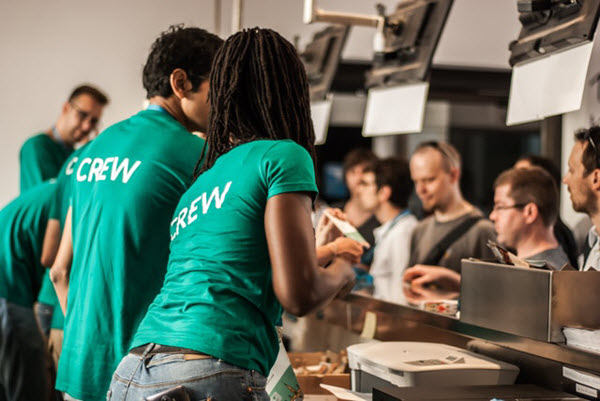Know Your Customers In The Digital Age
By Brian Wallace
October 31, 2017 • Fact checked by Dumb Little Man

To know your customers is crucial if you want to provide excellent customer service to make sure your customers come back. Back in the days, when brick and mortar was king, knowing your customers was easy. You would see them every day and get to know them on a personal level.
However, in today’s digital age, how do you get to know your customer on a more personal level? How do e-commerce sites get to know someone who is pressing a button a thousand miles away?
The answer is data.
How Does Data Enhance Customer Service?
Even though customers don’t go to brick and mortar stores as much as they did ten years ago, they still expect the retailers they are doing business with to get to know them on a personal level. But, how do you do that in a digital age?
Amazon is a category leader on this front. Around 35% of their sales come from suggestions they collect from past customer activity.
Online retailers have all the data they need to extrapolate customer preferences, including information about previous customer service actions and past orders. Using this information to give customers what they want when placing an order is key to keeping them to come back.
See Also: How Can Retailers Survive The Millennial Apocalypse?
How Important Is Customer Loyalty?

Most online retailers don’t turn a profit on a customer until they have shopped there several times already. The more frequent a customer shops at an online retail outlet, the larger their order will get. Return customers are important for profitability but they provide another key element for the long-term success of a brand.
Satisfied return customers often refer more customers, increasing the number of your loyal buyers. And the longer a customer is loyal to you, the more customers they will refer to your business.
Those customers will not just keep coming back but they can also spend more each time they go visit your shop.
Having The Data Is Not Enough
Empowering your customer service reps to act on the data they have is crucial to ensuring customer loyalty. Zappos is a shining example of customer service reps who are empowered to make things better for their customers, even during seriously difficult circumstances.
On a regular basis, you can see stories about customer service reps sending flowers to customers for various reasons- from not being able to find comfortable shoes to experiencing a death in the family. It’s no wonder that 75% of Zappos customers are repeat customers. Having the data about customers and being able to make decisions based upon that data is what sets companies like Zappos apart from everyone else.

What Causes Customers To Leave?
Of course, having data won’t be enough to stop customers from leaving. You can’t build your business solely around sending customers flowers or suggesting new things for them to buy based on their buying patterns. You have to engage in good business practices, too.
Among the most common things that make customers leave include:
- 57% will not buy if there are negative reviews that aren’t being addressed
- 53% will not buy if there is a data breach or leak
- 42% will not buy if there is no hope of getting in contact with a live customer service rep
- 38% will not buy if you don’t offer sales and promotions in a timely manner
Customer Loyalty Is The New Brand Loyalty
Customers used to be loyal to brands simply because they were the best ones available. Now, brand loyalty has shifted to be more about customer loyalty. If you aren’t doing everything you can to keep your customers happy, your business might not be around that long.
Knowing your customers is key to helping them make purchasing decisions they will be happy about. Since you already have all the data, you just have to learn to manage it properly to make the best use of it. Learn more about how master data management can help you keep your customers happy from this infographic!
See Also: The New Brand Loyalty

Brian Wallace
Brian Wallace is the Founder and President of NowSourcing, an industry leading infographic design agency based in Louisville, KY and Cincinnati, OH which works with companies that range from startups to Fortune 500s. Brian also runs #LinkedInLocal events nationwide, and hosts the Next Action Podcast. Brian has been named a Google Small Business Advisor for 2016-present and joined the SXSW Advisory Board in 2019.


